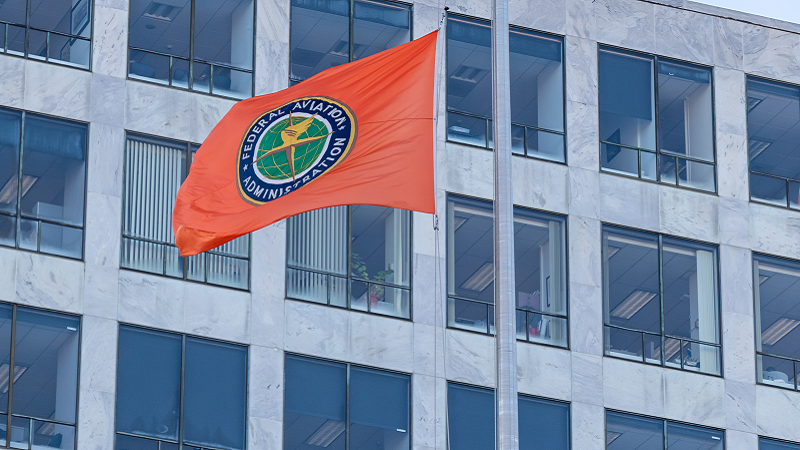
President Joe Biden signed the Federal Aviation Administration (FAA) Reauthorization Act of 2024 into law on May 16, injecting the agency with more than $105 billion over the next five years.
The bill – signed into law after months of deliberation in the Senate – will expand flights at Reagan National Airport serving D.C., but it also includes several tech and workforce provisions that promise to bolster security and innovation within the Federal aviation sector.
The House first passed its version of the bill to reauthorize the FAA last July, two months before funding for the agency was set to expire on Sept. 30, 2023.
The Senate was slower to the punch – first introducing the bill in June 2023, but not passing it out of committee until February 2024. The fight over adding flights at Congress’ favorite D.C. airport delayed passage in the Senate long enough that lawmakers enacted four stopgaps to temporarily fund the FAA.
The 1,083-page bill signed into law earlier this month authorizes $17.8 billion for FAA facilities and equipment to fund modernization of key technologies and systems from fiscal years 2024 to 2028 “to ensure the resilience and development of the world’s most complex airspace system.”
For example, the bill aims to reduce runway “close calls” by requiring the FAA to deploy the latest airport surface situational awareness technologies that track runway aircraft and vehicle movements to prevent collisions, evaluate runway safety technologies, and increase deployment of technology such as Airport Surface Detection Equipment at airports.
The bill also helps protect aircraft electronics, including piloting control, against cybersecurity threats through new FAA requirements and review of the FAA’s current strategic framework for aviation security. The bill requires the FAA to complete the last stage of NextGen by Dec. 31, 2025, and upgrade the National Airspace System with the latest software and infrastructure.
The biggest piece of funding in the bill – $66.7 billion – is dedicated to key safety programs, including hiring, training, and retaining safety-critical staff like air traffic controllers and technical engineers. The FAA Reauthorization Act is specifically looking to grow workforce representation from veterans and women at the agency.
The bill also authorizes nearly $1.6 billion over the next five years for FAA research, engineering, and development “to help America keep competitive in the global race for innovative and sustainable aerospace technology.” The funding includes a new research program to ensure continued modernization of the FAA’s aviation information systems and research for how to best introduce emerging technologies into the airspace.
Finally, the bill authorizes $738 million in appropriations for the National Transportation Safety Board for fiscal years 2024 through 2028.
“For over a century, the United States has led the world in aviation safety and innovation, and this bill is critical to ensuring America remains the global leader in aviation. It’s vital to our economy, to millions of American jobs, and to the millions of passengers that depend on our National Airspace System every single day,” House Transportation and Infrastructure Chairman Sam Graves, R-Mo., said upon final passage of the final bill. “This comprehensive bill improves our aviation system’s safety, infrastructure, and workforce. It will enhance the FAA’s efficiency and the overall passenger experience, while encouraging domestic innovation in aviation.
“The American people expect and deserve the safest, most reliable and modern aerospace system in the world and this landmark bill is intended to deliver just that,” said Senate Committee on Commerce, Science, and Transportation Chair Maria Cantwell, D-Wash. “Our bipartisan legislation sets clear priorities to strengthen aviation safety standards, implement new safety technology, hire more Air Traffic Controllers and safety inspectors, give passengers a guaranteed right to a refund, advance innovation and modernize our air travel infrastructure nationwide.”
